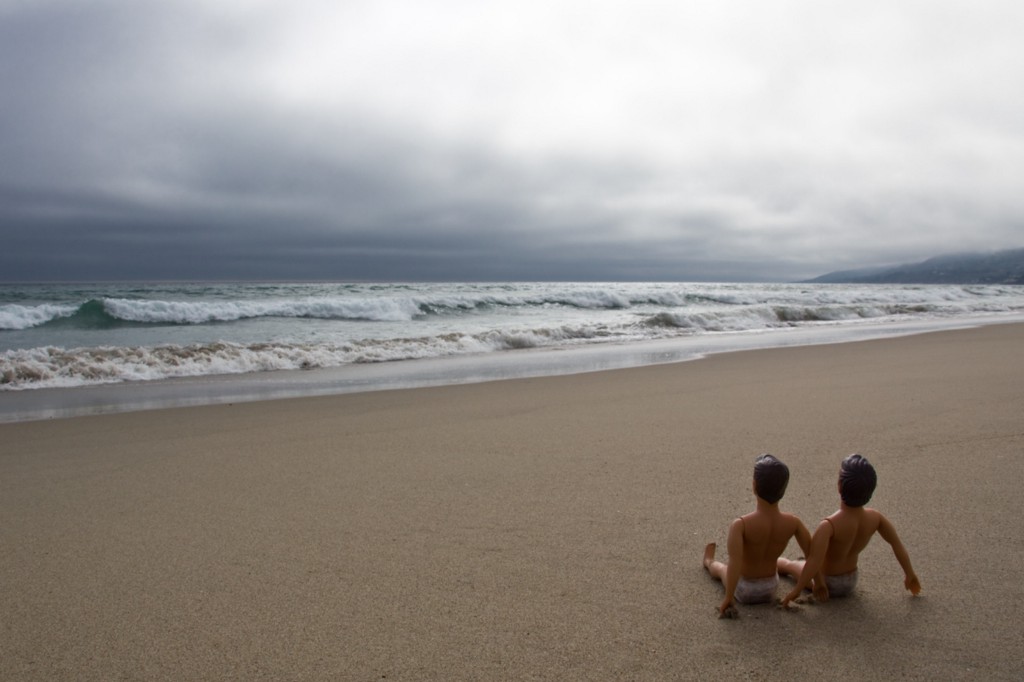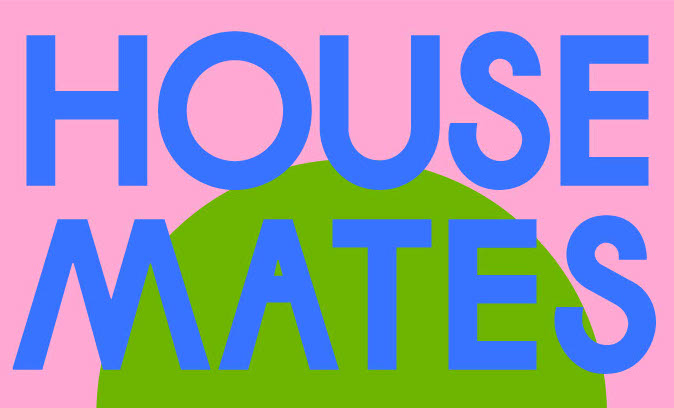Books & Culture
Why Are So Many Gay Romance Novels Written By Straight Women?
Stay out of my queer romance, Sharon

Seeing yourself, whether it’s on the screen or on the page, is a powerful experience. So often, though, for queer people, the options are either super whitewashed or rooted in hurtful stereotypes. In gay romance novels, it’s both, and straight women writers are responsible.
When I started working as a book reviewer in 2009, gay romance was exploding as a popular romance genre. (Technically what I’m talking about is called “male/male romance”; “gay romance” is written by gay men for gay men, may not focus on a romantic relationship, and doesn’t guarantee a happily-ever-after. But outside the industry, these distinctions are elided, and most people think of all male-male romance novels as “gay.”) I was excited to see more indie presses focusing on LGBTQ stories and choosing romances that were complex, interesting, and dealt with issues like domestic violence or adoption. As a queer, trans reader, I looked forward to seeing myself in their pages. But I was surprised to find that some LGBTQ-focused stories were reflecting not me, but a straight person’s imagination of me.
I was surprised to find that some LGBTQ-focused stories were reflecting not me, but a straight person’s imagination of me.
The vast majority of gay romances are written by women. White women. Straight, white women. Straight, white women who, in their “about the author” sections, talked about their husbands, children, cats, chickens, and love of artisanal cured meats. The first time I noticed this, I flipped the book over in my hands, back and forth, looking at the ultra-gay cover art, and then the author’s photo on the back. I couldn’t reconcile the two. I may not be a gay man, but I know appropriation when I see it.
How could straight women feel that they have the authority to write gay romance? Because they’ve been told so by a culture that has long treated gay men as a neutered, fetishized object of curiosity. The trope of the tame gay man is a favorite in straight culture. Everywhere, the media gives us the gay-best-friend dynamic: straight women treating cis gay men like pets. “It’s just us girls,” they croon to each other, holding hands at the nail salon. A gay best friend is shown as the perfect accessory for any hip straight woman. He’s expected to be her personal shopper, fashion advisor, shoulder to cry on, sex therapist. His identity is not defined by him, but by how well he props up her ego.
In this dynamic, which I see enacted in gay romance novels, the truth of the man’s queerness is erased, because the character is gay only in the ways the straight woman author can imagine. She censors his sexuality by filtering it through a heterosexual lens. The author handles her gay characters like dolls, using them to act out her desires. She shoves the rubber faces together and smudges them against one another: Now kiss. The characters, who are labeled as gay, are only fantasies — -straight women’s fantasies, shared with an audience of straight women. The first time I read a novel like this, from its sex scenes to its deep, emotional dialog, all I could think was, Is this what we are to you?
The we is queer people: those of us who traditionally occupy the supporting roles in straight stories. When a straight woman decides to “redeem” the gay narrative by making her main characters mainstream-hot, cisgendered, able-bodied guys, and “gives them” a happy ending, she is not making progress. She’s not even being subversive. She’s merely repeating the age-old trope of straight people controlling queer bodies, and she’s doing it to make money and titillate the audience of straight women who buy her books. That’s right: gay men, the stars of these romances, aren’t the intended audience. Straight women are. So where does that leave gay men? Again, supporting straight women’s desires.
Gay men, the stars of these romances, aren’t the intended audience. Straight women are. So where does that leave gay men?
Now, far be it from me to pass judgment on someone else’s masturbation fantasies. God knows I’ve done plenty of politically incorrect things, in and out of the bedroom. My criticism of straight women co-opting gay bodies for their own pleasure is based on the belief that no person can ethically use other people, especially marginalized people, to benefit themselves. Claiming that gay romance written by straight women is somehow “LGBTQ representation,” only makes things worse. Sunny Moraine said it best: “Don’t you dare claim that you’re doing something progressive on behalf of populations to which you don’t belong. Because you aren’t. It’s not your progress to make.”
Straight women seem to feel entitled to write gay characters because they think homosexuality is simply an inherent desire to attract and please a man. She may think, “He’s just like me because he likes penetration and getting his hair done.” A gay character is just a straight woman with different genitalia, right? According to Lambda Literary, one male/male romance author said, “I write characters that seem to appeal to both genders without a problem. I just make sure I write men as men and not women with dicks.” And the sex scenes? She said, “I’m a nurse, I know where things go.”
Is that what we are to you?
This is why I gravitate towards publishers like Interlude Press, which consistently seeks out and champions LGBTQ voices — not just stories that feature queer characters. Olympia Knife, a historical romance, was a real standout. Riptide Publishing produced the lovely and subtle Hopeless Romantic, about a gay man who falls in love with a trans girl. These gems are the fulfillment of what gay romance can be: LGBTQ authors, writing about LGBTQ characters, for an audience of all kinds of readers, including straight women. I suggest that a greater diversity of authors might enlarge the mainstream’s understanding of what it means to be gay. Highlighting only people who conform and express themselves in a safe, straight-friendly, toothless way, neuters and erases LGBTQ people. As George Michael told The Guardian in a 2005 interview: “Gay people in the media are doing what makes straight people comfortable, and automatically my response to that is to say I’m a dirty filthy fucker and if you can’t deal with it, you can’t deal with it.”
Straight characterization of queerness that is written to appeal to straight readers by straight writers is bigotry. It may be gentle and well-meaning, and keep chickens in the backyard, but it benefits from oppression. The argument that “we’re all human” and united by a common human experience falls apart under closer scrutiny. If you dehumanize one group or place your personal wishes over their dignity, you have voided your creative license. There are responsible ways to write out of your lane. Hiring someone to be a sensitivity reader can be helpful, especially if that person isn’t out to stroke your ego.
Of course, that choice has its problems, too. Instead of perpetuating the dynamic of gay men educating straight women, or cosigning their choices, straight women who want to write gay romance might ask themselves the questions any writer should: Why am I writing this? Who is my reader? Am I adding something valuable to my genre? Is this story mine to tell? A sexy, frisky story about two firefighters may have commercial potential, but that doesn’t mean the writer has to pursue publication. If a straight writer is really that devoted to queer progress, the right action may be to step aside.
Why do we need a queer reimagining of straight stories, or a straight interpretation of queer stories, when we can create our own?
Most of all, it’s so important to center queer love, as understood by and lived by queer authors. Why do we need a queer reimagining of straight stories, or a straight interpretation of queer stories, when we can create our own? If straight women gravitate towards gay romance, that’s great,: but it should be romance on our terms. Instead of occupying space in a genre that objectifies gay people, it is better to support gay authors, especially writers of gay romance and other LGBTQ-centered stories.
Gay men, however they choose to present, or integrate into society, or maintain their relationships, must be respected. Celebrated. Centered. I’m hopeful that we will see more LGBTQ voices in romance, telling meaningful stories about love, trouble, and happy endings.








